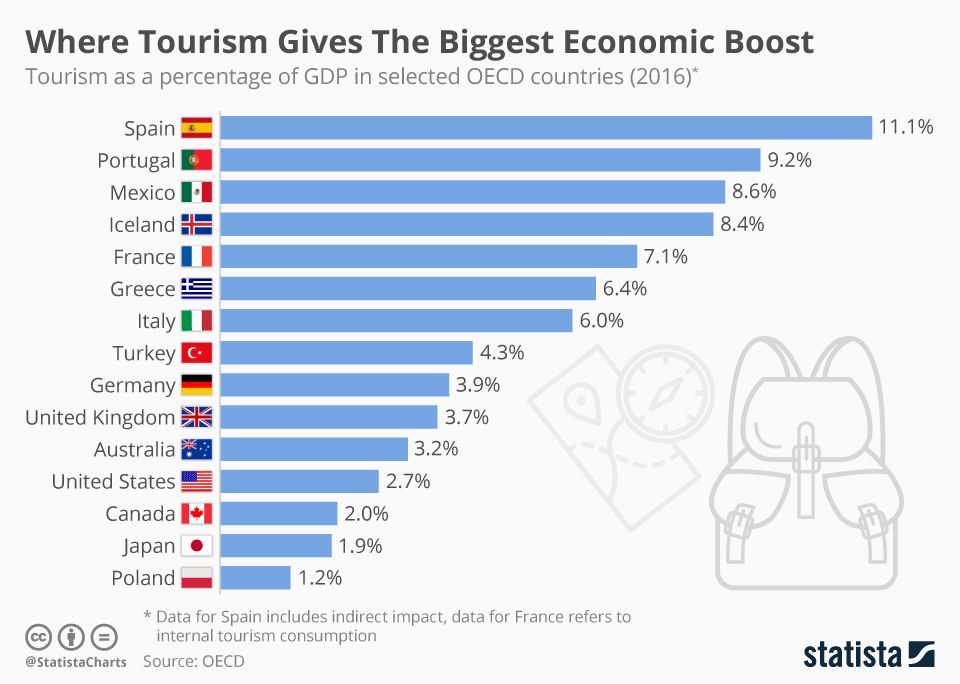(Editor’s note: As we’re posting this on 20 March, Portugal has recorded four coronavirus deaths and has a far smaller percentage of population infected than neighboring Spain. Also, tourism between Portugal and Spain has been suspended. You can see our running account of coronavirus precautions across Europe here.)
Lisbon could not look more different these days. You can hear the eerie silence in the streets of the downtown area on a beautiful, sunny Saturday afternoon in the Portuguese capital. Buses and trams are empty, and the only people in the streets are those who apparently really had to go out.
There are also very few tourists who probably had their holidays booked ages ago. Even though it was an absolutely beautiful day, people, including few holiday-makers, looked quite nervous. After all, they did not expect to spend their holiday wearing masks and avoiding closed spaces.
At the moment of writing the article, 785 cases have been reported in Portugal as well as four deaths. The country declared a state of emergency in the evening of Wednesday 17 March in order to restrict the movement of the people and hopefully control the rapid spread of the pandemic.
All regions have cases now: mainland Portugal, the Azores and Madeira. So far, Portugal is doing much better than its Southern European neighbours. We do not know when Portugal will actually be doing better, especially with the rapid increase of the cases in the last 48 hours. However, the state did well to close the borders with Spain as well as severely limit flights in and out of the country.
The terror of the pandemic has disrupted the daily lives of the Portuguese people. Moreover, it has clearly affected the Portuguese economy which heavily relies on tourism as a major source of income, 9.1 percent of GDP, according to Statista.
Ana, a freelance tour guide, 26 years old, says that she went from conducting an average of 10 tours per week to being completely jobless since the outbreak of the pandemic in Portugal. “There are hundreds of young people like me whose livelihoods depend on tourism,” says Ana.
Here’s how coronavirus is affecting the tourism sector:
• Reuters confirmed that 60 percent of hotels in the Southern Algarve have reported cancellations. Portugal is the destination for more than 16 million foreign visitors per year with its most popular regions being Algarve and Lisbon.
• The pandemic has put the Easter holiday season at risk. Seasonal workers of the tourism industry across Portugal are also terrified of the crisis extending to the summer season. In this case, businesses would cut down on seasonal workers leading to thousands of people losing their jobs.
• In addition, the Portuguese airline TAP has suspended more than 4,000 flights between now and May with the anticipation of more airlines cancelling flights in coming days.
• AHP hotels Association has estimated the loss in their revenues to be between 30 percent and 50 percent, which translates into about 800 million euros in expected losses between March and June.
The temporary closure of some of the companies with great weight in the Portuguese economy and the complete collapse of tourism could mark the beginning of a period of economic decline. Moreover, the restriction on movement led to many shops and restaurants closing or reducing the number of employees.
According to some preliminary calculations made by the Portuguese economist Francesco Franco, the quarantine situation may lead to losses which exceed 4 billion euros per month. It is difficult not to panic when seeing these figures.
On the other hand, there is also a more optimistic scenario presented by the financial rating agency Standard and Poor’s which has confidence in Portugal’s ability to overcome the losses incurred by COVID-19. The agency expects a U-Shaped growth of the economy where there will be a period of revival after a relatively short period of negative impact.
Whether we go with the negative or the positive scenario, it is likely the Portuguese state as well as the European Union might have to intervene at some point to bailout businesses which are losing massive amounts of revenue because of the pandemic. These bailout measures will be at the expense of the European taxpayers, though, who might have to deal with serious austerity measures.
However, there is always hope that with the precautions taken by the Portuguese as well as the suspension of most activities in Portugal that we may be able to save the situation from becoming like the crises currently engulfing Italy and Spain. There is a chance that by people staying home as well as restrictions on traveling the rapid spread of the pandemic will stabilize, and even recede, by the time summer approaches.
Undoubtedly, the suspension of school classes, gyms, swimming pools, museums, and libraries is the right action to take at the moment. Moreover, encouraging people to refrain from gatherings and crowds is also indispensable. The Portuguese government has to learn from the Italian situation that without interrupting normal work practices for those working in social environments – without guaranteeing financial stability for workers and businesses alike – workplaces will become epicenters of contagion. Many more people will be exposed to the virus while going to and from work in public transport.
If we look at countries where the rate of mortality and infection is now receding, such as China, it is only by taking such measures along with investment in tests and treatment centers for every at risk neighborhood that the situation started to improve.

About the author:
Sarah Nagaty is a PhD researcher of cultural studies in Lisbon. She’s lived in Portugal for two years.
As a student of cultural studies, Sarah is drawn to what connects people from different backgrounds to new cultures and places, how they relate to their new surroundings and what kind of activities they could engage with in their new hometowns.
See all of Sarah’s Dispatches posts here.
See Dispatches’s Lisbon story archive here.
Sarah Nagaty has a PhD in cultural studies, She’s lived in Portugal for six years.
As a student of cultural studies, Sarah is drawn to what connects people from different backgrounds to new cultures and places, how they relate to their new surroundings and what kind of activities they could engage with in their new hometowns.

















